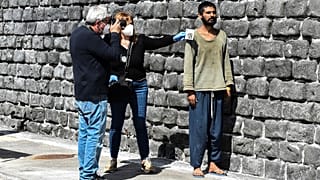Switzerland
Global health initiative, Unitaid, says it is making a $31 million investment to prevent hepatitis C among people who inject drugs, and other at-risk populations such as those in prison.
Marginalized groups are disproportionately affected by the blood-borne disease, which can cause serious liver damage and cancer when left untreated.
Four in ten people who inject drugs and one in four incarcerated individuals have active hepatitis C infections.
Unitaid says there are now highly effective treatments that are affordable in most low- and middle-income countries, where 80 per cent of people with the virus live.
Yet most of them do not have access to care.
Its funding will support efforts to reach these people by incorporating testing and treatment into harm reduction programmes.
At the same time, it will trial the use of two underused products aimed at reducing risks associated with injecting drugs.
Both will be tested in Egypt, India, Kyrgyzstan, Nigeria, South Africa, Tanzania, Ukraine, and Vietnam.
The prevention tools and approaches will also help prevent transmission of other blood-borne diseases including HIV.












Go to video
Rwanda to test AI-powered technology in clinics
00:07
US-backed hepatitis B vaccine study halted in Guinea-Bissau
00:47
US YouTube star IShowSpeed celebrates 21st birthday in Lagos
Go to video
US House passes 3-year AGOA extension but South Africa's inclusion is unclear
02:11
Senegal to ramp up education, health and water investment in 2026
01:56
Nigeria signs healthcare deal with US under new global health framework